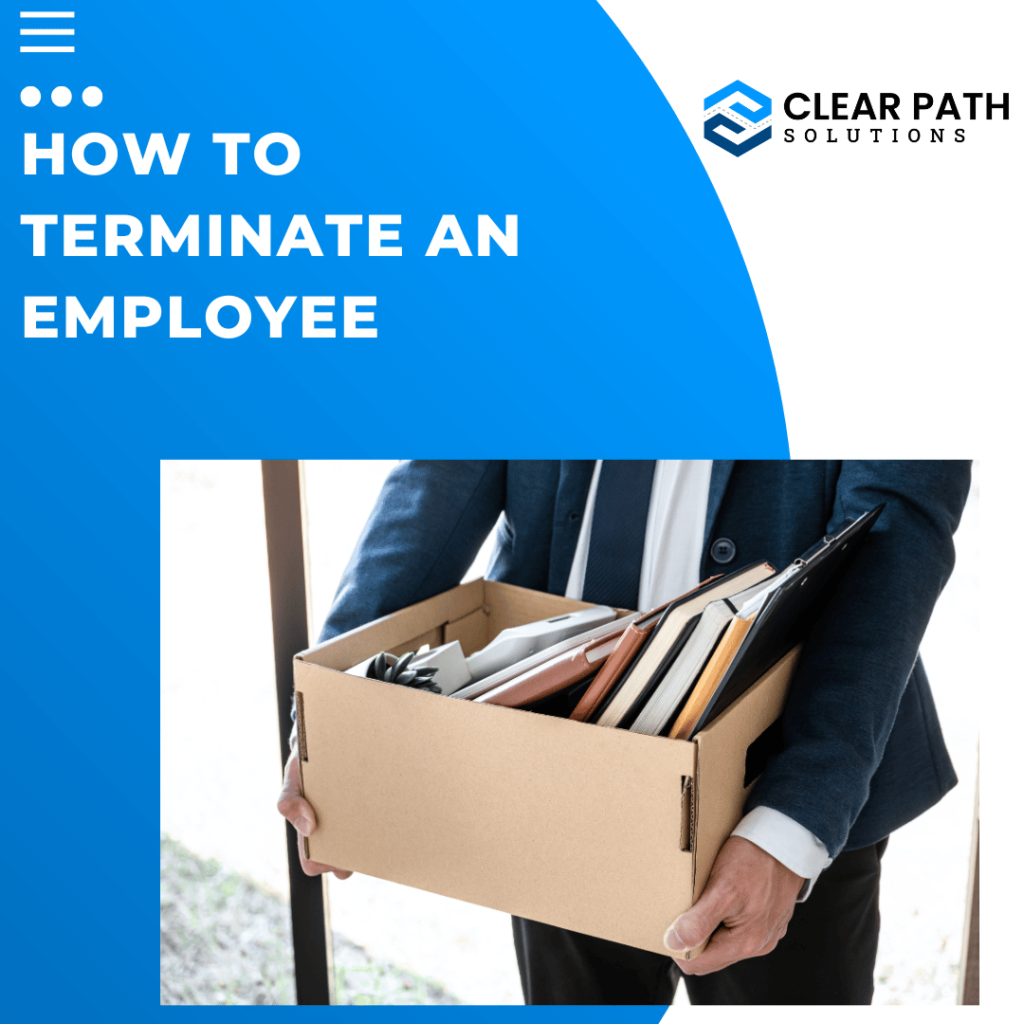How to Legally Manage Employee Terminations in The UK
At Clear Path Solutions, we understand that terminating an employee is never an easy task—emotionally, operationally, or legally. Whether it’s due to misconduct, redundancy, poor performance, or business restructuring, dismissing an employee in the UK requires strict adherence to employment laws and fair procedures. Get it wrong, and your organisation could face an unfair dismissal claim, reputational risk, or costly legal disputes.
This guide outlines everything UK employers need to know to manage terminations legally, respectfully, and in line with best practices.
If you need hands-on support at any stage, our compliance experts at Clear Path Solutions are here to guide you.
Why Employee Termination in the UK Is Complex
In the UK, termination is governed by the Employment Rights Act 1996, along with various statutory and common law protections. Dismissing an employee isn’t simply a managerial decision; it’s a legal process that must be justified, well-documented, and procedurally fair.
For example, employees with over two years of continuous service are protected against unfair dismissal, meaning you must have a valid reason and follow a fair dismissal procedure. Even in cases where an employee has less than two years’ service, other claims—such as discrimination or breach of contract—can still arise.
To stay compliant and reduce risk, it’s essential that employers understand the steps involved and document every action.
Common Lawful Grounds for Termination in the UK
There are several reasons an employer may terminate an employee’s contract in the UK, each requiring a tailored approach:
Poor Performance: If an employee consistently fails to meet job expectations, you must demonstrate that you followed a formal performance management process. This typically includes setting clear objectives, conducting performance reviews, offering support or training, and issuing warnings where necessary.
Misconduct: Misconduct refers to breaches of company policies—ranging from repeated lateness to gross misconduct like theft or harassment. You must carry out a fair disciplinary process, including an investigation and a hearing, before deciding on dismissal.
Redundancy: Redundancy is a valid reason when a role is no longer needed due to restructuring, technological changes, or business downturn. However, redundancy processes are highly regulated and must include objective selection criteria, consultation, and statutory redundancy pay (if eligible).
Incapacity Due to Illness: Long-term illness may justify dismissal if it prevents the employee from fulfilling their role. However, you must first consider reasonable adjustments and obtain medical evidence before taking any action.
End of a Fixed-Term Contract: If a fixed-term contract naturally concludes, dismissal must still be fair, and notice must be provided unless otherwise stated in the contract.
During or After Probation: While it’s generally easier to dismiss someone during their probationary period, employers should still provide a clear reason and apply notice periods as agreed in the contract.
Need help drafting disciplinary or performance improvement plans? Contact Clear Path Solutions today.
Step-by-Step Guide to Dismissing an Employee in the UK
1. Confirm the Reason for Dismissal
Start by identifying and documenting the reason for termination. It must be one of the five fair reasons under UK employment law:
- Conduct
- Capability
- Redundancy
- Statutory restriction (e.g., loss of a driving licence)
- Some other substantial reason (e.g., business reorganisation)
Make sure the decision is based on facts, not assumptions, and supported by documented evidence such as appraisals, emails, or warnings.
2. Review the Employee’s Contract and Company Policies
Check the employment contract, staff handbook, and disciplinary or grievance procedures. You must ensure the termination aligns with any contractual obligations or internal policies—especially regarding notice periods, dismissal procedures, and appeals.
If your business has union representation or collective agreements, these must also be taken into account.
3. Ensure Compliance with UK Employment Laws
Before proceeding, double-check all statutory requirements:
- Has the employee worked continuously for more than two years?
- Have you provided prior warnings or consultation where applicable?
- Are you observing statutory notice periods?
- Is there any risk of the employee claiming discrimination or whistleblower protection?
Unfair dismissal claims can be costly—avoid them by ensuring every step is legally compliant.
Not sure whether your procedure is watertight? Let our HR compliance specialists at Clear Path Solutions help you audit your process.
4. Plan the Termination Process Carefully
Decide who will lead the meeting (typically a line manager or HR representative), prepare documentation in advance (termination letter, final payslip, settlement agreements), and arrange a private setting for the conversation.
Make logistical arrangements to disable access to company systems, retrieve IT equipment, and secure sensitive information.
Being prepared will make the process smoother and reduce the risk of escalation.
5. Hold a Fair and Respectful Termination Meeting
During the meeting:
- Clearly explain the reason for dismissal.
- Refer to previous warnings, consultations, or performance issues.
- Allow the employee to respond and ask questions.
- Provide written confirmation and next steps, including their right to appeal.
Remain calm, professional, and empathetic throughout. The way you conduct the meeting matters just as much as the outcome.
6. Provide Final Pay and Entitlements
Under UK law, employees are entitled to:
- All outstanding wages
- Accrued but unused holiday pay
- Statutory notice pay (unless dismissed for gross misconduct)
- Redundancy pay (if applicable)
Make sure final payments are made promptly to avoid post-termination disputes.
Need help calculating redundancy or notice pay? Speak to a Clear Path advisor now.
7. Recover Company Property and Data
Arrange the return of company items such as:
- Laptops, mobile phones, and ID cards
- Keys, access cards, or uniforms
- Confidential documents
Revoke system access and remove user accounts to protect your business data.
8. Maintain Accurate Documentation
Keep clear records of all meetings, warnings, correspondence, and formal decisions. This documentation will be vital if the employee lodges a claim or requests a Subject Access Request under GDPR.
Clear Path Solutions offers compliant termination templates—contact us to request yours.
Special Considerations for UK Employers
Redundancy: For 20 or more redundancies at a single site, collective consultation is required under UK law. Statutory redundancy pay applies for employees with at least two years’ continuous service.
Protected Employees: Extra care is needed when dismissing employees on maternity leave, with disabilities, or who have raised grievances. These individuals are protected against unfair dismissal, and any action must be backed by strong evidence and legal advice.
Probationary Dismissals: While easier, dismissals during probation still require a fair reason, appropriate notice, and respectful communication. Avoid treating probation as a shortcut to terminate employees without due process.
Settlement Agreements: In some cases, it’s in the employer’s best interest to offer a mutually agreed settlement to end the relationship amicably. Legal advice is recommended when drafting and executing such agreements.
Final Thoughts
Terminating an employee in the UK is a significant legal and human responsibility. By following a structured, fair, and legally compliant approach, UK employers can protect their business while preserving dignity and trust in the workplace.
At Clear Path Solutions, we specialise in helping UK employers navigate employment law with clarity and confidence. Whether you need support with a redundancy process, misconduct dismissal, or exit documentation—we’re here to guide you every step of the way.
Need a termination checklist or tailored HR templates for your UK business? Get in touch with Clear Path Solutions today.





